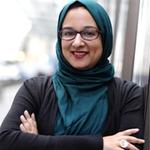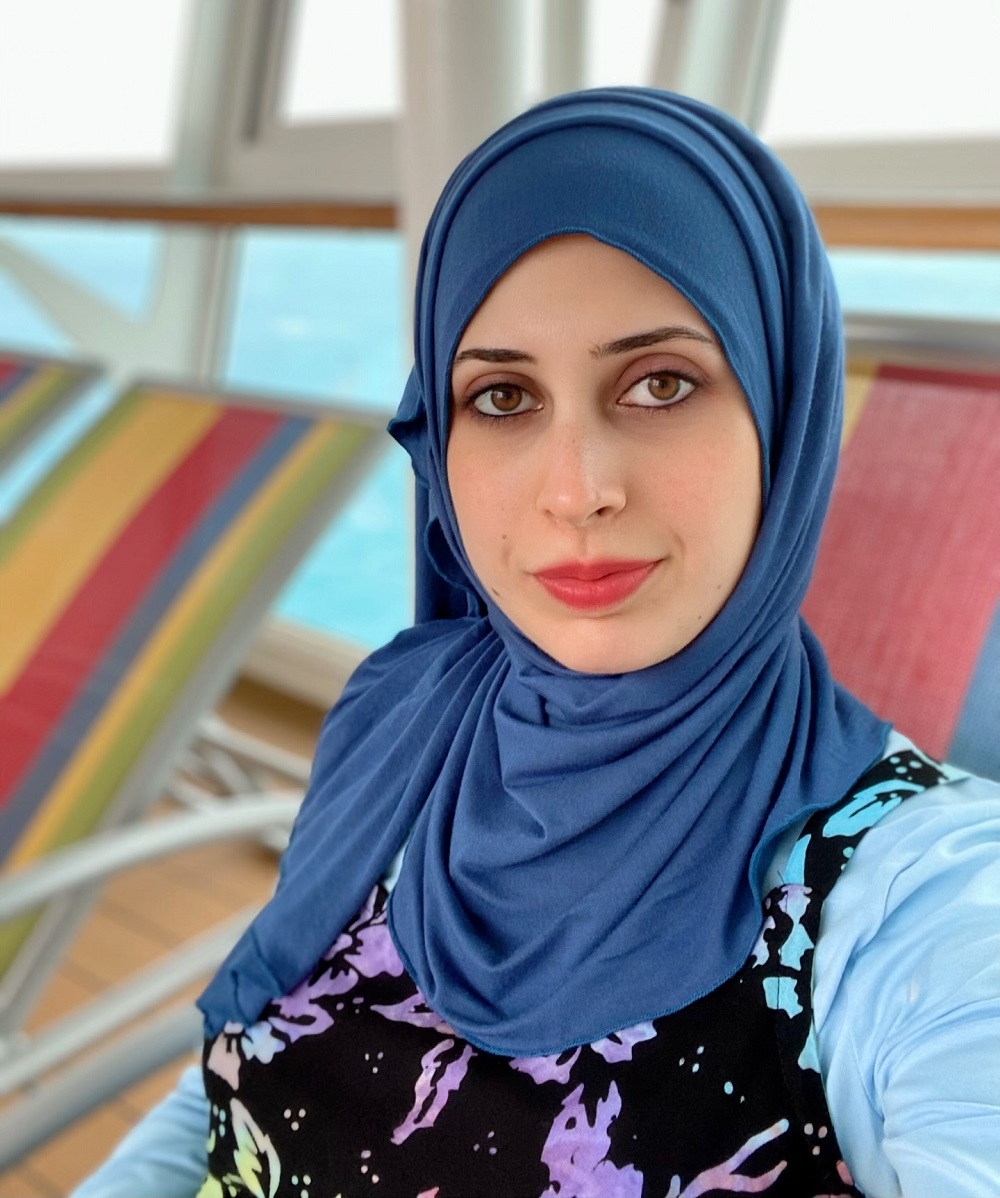When is it the Right Time to Go for Hajj? Three Women Share Their Stories
Faith
|
Jun 27, 2023
|
9 MIN READ
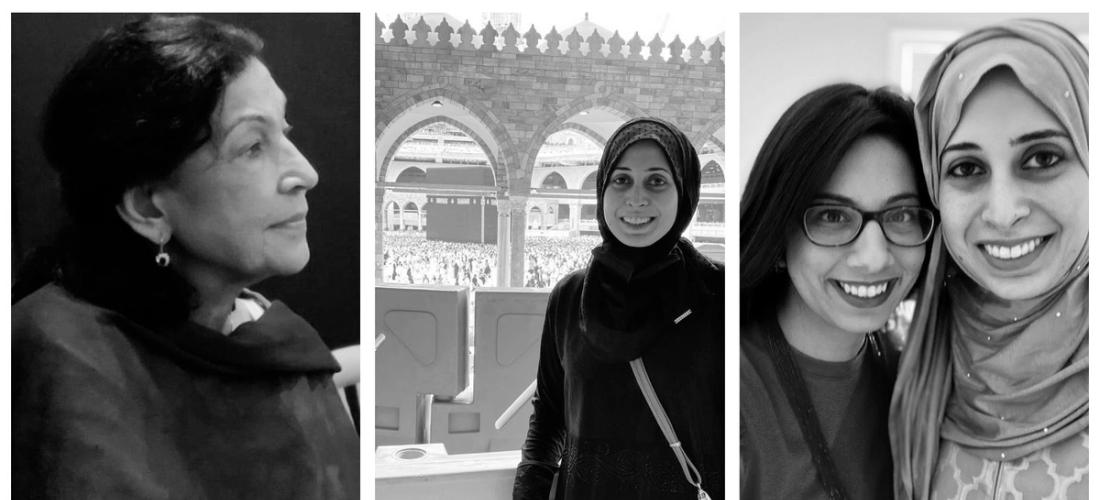
From L to R: Farzana Hasan, Dr. Ayesha Mohammed and Asra Husain and Dr. Ayesha Mohammed
Hajjis of all ages from all parts of the world (Muslims who are performing the Hajj pilgrimage) are gathering on the plains of Arafah for a day of worship. They’re partaking (or have already) in the metaphorical stoning of the devil at the Jamarat and spending time in worship in the camps of Mina. They’re performing tawaf around the Ka’bah in the Grand Mosque and running between the areas of Safa and Marwa as they complete the rituals of Hajj.
All able-bodied and financially-abled adult Muslims are required to go for Hajj once in their lifetime. And, it’s not as easy as just planning a trip. Performing the Hajj isn’t easy, and it costs a significant amount of money. It takes time and spiritual preparation. The timing of Hajj is very specific to the Islamic month of Dhul Hijjah, and our Muslim lunar months shift in 10 day increments around the Gregorian calendar.
And finally, one must apply to go for Hajj, and not everyone gets to go when they want, as the Saudi government has set limitations to control how many people can perform the physical rites of Hajj in a small geographical area in a set amount of time.
With all this to consider, when is it the right time to go for Hajj? When one is young and probably has less fiscal and familial responsibilities? When one is older and in a more retired stage of life? The easy answer is that there is no set answer to this question. It’s highly subjective due to a person’s circumstances at any given time.
I went for Hajj with my husband at a younger stage in life. I was in my late 20s but already had two children, the eldest of whom had recently been diagnosed with autism at the time. We lived in apartments, had no student debt, owned our car and had healthy parents who could look after our babies for us. So that was the right time for us. How would Hajj be for us if we went now with everything we’ve gone through and are currently shouldering? What if we went in our retirement years?
I love hearing everyone’s Hajj stories and sought out three women – two of whom are performing Hajj this year together – and one who went about 10 years ago to share their Hajj stories with me. All have done their Hajj at very different stages in life, which has brought beautiful nuances and closeness to their desire to go, their connection with Allah (S) and their ability to perform the Hajj. Here are their stories, as told to me, which I’ve edited and condensed to share with you.
(Full disclosure – Asra Husain, whom I interviewed for this article, is my cousin.)
Dr. Ayesha Mohammed, a physician based in Chicago
Dr. Ayesha Mohammed is wearing an HH Jersey.
I had been desiring to go for Hajj for a long time. Even when I was doing my residency, I always had in my mind that this was something I needed to do. But I had loans to pay off, I wasn’t financially independent. So I thought, I’ll think about it after I'm done with training. From there, everytime I had a birthday, [my brother] Tabraiz would always ask me, “What do you want?” I’d say “I want to go for Hajj.” He’d say, “That’ll be your wedding present.”
But I’m still single. When I started working on my own about 8-9 years ago, I always had in my mind the advice I was given by my brother and older relatives to save money for a rainy day, So I was saving money for a rainy day, and I was saving money for Hajj.
[My brother] said he and his wife were going to wait for Hajj to go when their youngest child was at least five years old., and that I could come with them. I either wanted to go with my family (my dad, my mom or my brothers) or when I got married. And I didn’t want to have student debt hanging over me.
Well, President Biden got elected and there was all this loan forgiveness happening. And before that, the pandemic happened. My parents had illnesses they went through, I went through some stuff at work, and since then, there was this even more need for Hajj. The last time we did umrah was 2017. And I was very emotional, I didn’t want that much time to pass until we went again.
This past December we were able to go for Umrah, Subhanallah. I wanted to go so badly. it was a desperate cry in the dark, alone – just let this work out. When we were planning it, it just wasn’t working out. I was so prepared to go on this trip – I just need to go to the haram (the Grand Mosque) and go and cry my heart out. I was just sitting there in my home, and I bawled my eyes out. But then it all came together. And when we were there for umrah, I prayed that I could be brought back for Hajj.
I’m 40 now, and I’m not waiting to be married before I go for Hajj. My loan forgiveness went through, I have no major debts, I feel like this is a good time. I don’t have to worry about kids, I don’t have to worry about who’s going to watch them, I have a job that gives me flexibility to take all this time off. And so I prayed: Ya Allah (S), you know what the right time is for me. Just facilitate it for me.
Lo and behold, before you know it, all of this was put in motion, and we’re going.
This is the right time for me. If I think back to my 20s, none of my factors were met – I had loans, I wasn’t working, I wasn’t as close to Allah (S) back then as I am now. I needed Islam to be meaningful to me. That sweetness wasn’t there before, but it is there now. Even if all the factors had been met 15 years ago, that sweetness wasn’t there. It wasn’t the right time for me.
Hajj is an invitation from Allah (S). Everything for me right now is perfect. Everyone has their own path, everyone has to go through things differently in life. This reflection came from my Hindu father-like figure of a colleague – there is no cookie-cutter life. There’s stuff you have to go through in your life, and when the time is right, the time is right. Allah (S) knows when it’s the right time for you.
Asra Husain (Dr. Ayesha Mohamed’s sister-in-law), attorney and mother of three daughters
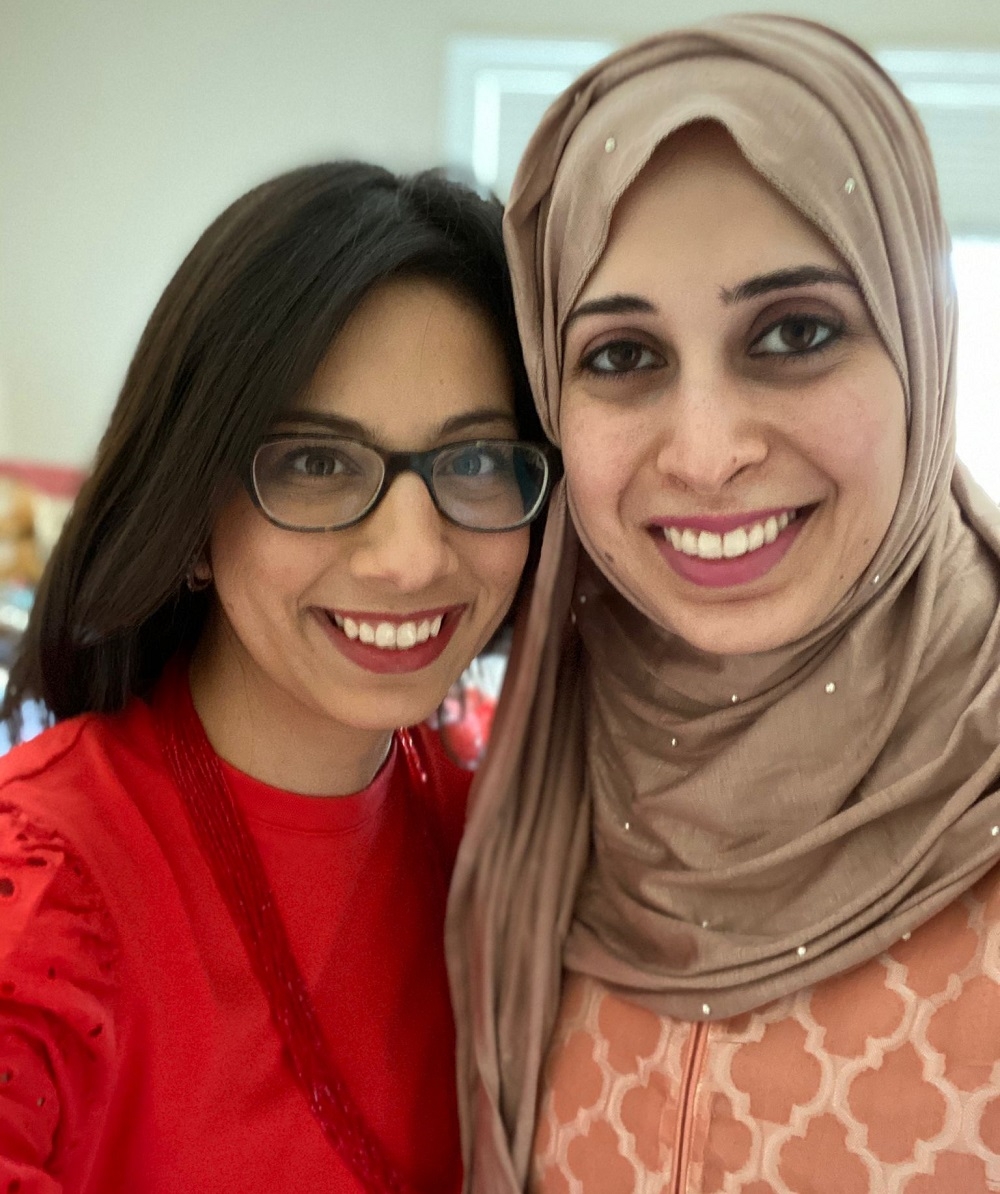
Asra Husain (left) and Dr. Ayesha Mohammed
When [my husband and I] had [our eldest daughter], we looked at what would be a good age to leave our children and go for Hajj. We thought, initially, when kids are 5 or 6. We looked at where Tabraiz, my husband, was in training and work. How long would it take to pay down all of our debts so we can go? We both have a masters degree and a professional degree – that’s a lot of student debt.
Then we had [our second and third daughters). When we had our last daughter, we were closer to getting our debts taken care of. We were, at this point, just carrying our student debt (and our home). We looked at school calendars, how old our kids would be, and we thought – 2023 would be our year, because it’ll be summer, the kids will be out of school and can go somewhere if they need to or have someone come take care of them.
So when I had started law school, I had always planned to do public interest law, and I knew it would be hard to pay off my debt. But I took advantage of student loan forgiveness and got my loans forgiven last year. Then I talked to my husband and told him that he may qualify for this too. And, his loans were forgiven.
We were very nervous when [the Saudi government] changed the system last year. We gave Dar es Salaam a deposit in January of 2022 meant for Hajj in 2023 – a year and a half in advance. But then there was a new system. We didn’t know what would happen. Our deposit stayed with Dar es Salaam through Ramadan of this year. Then it became clear that we’d have book online. It seemed like the rules were changing every day So it was a lot of letting go – Allah (S), please help this work out.
It’s been hurdles all the way. All these classes we’ve done and all the lectures we’ve listened to, they tell us each year the people who are chosen for Hajj, it’s a delegation that Allah (S) has picked. This will be the longest I’ve been away from my kids – all three of them. Both of us, my husband and I, haven’t been away from them for more than one night.
So what I’ve learned is, there isn’t a right time to go. You just have to make it the right time.
Farzana Hasan, a retired event and meeting planner in Milwaukee, Wisconsin
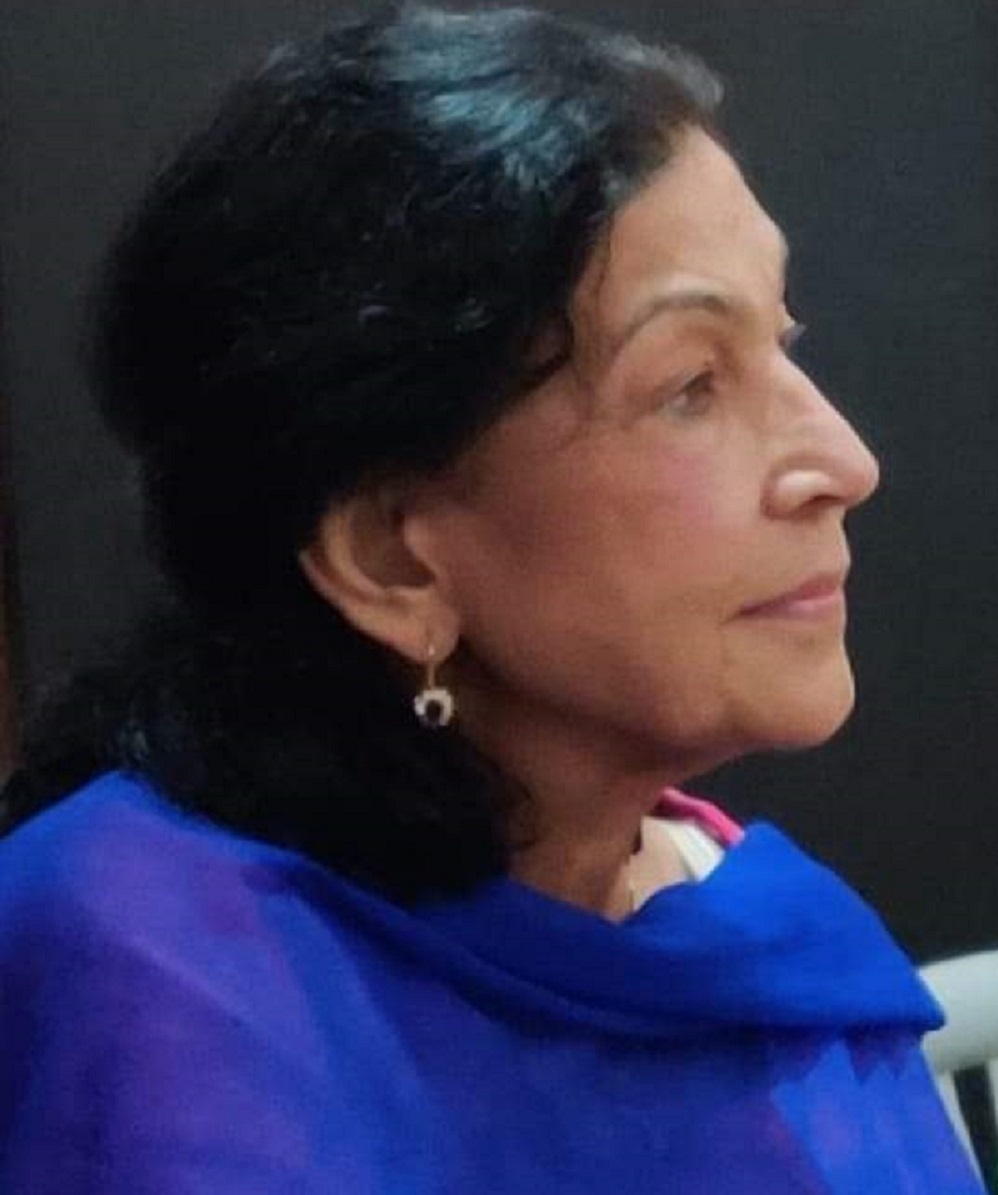
Farzana Hasan, who is the mother-in-law of The Haute Take's contributing writer Zaiba Hasan, co-founder of Mommying While Muslim.
I went for Hajj in 2012; I was in my early 60s. It was my first Hajj.
We were thinking about it, me and my husband, for a few years. But I was still working and Hajj back then was during the winter months. In my profession, I couldn’t take the time off, because I was working as an accountant back then, tax filing and such. When [the timing of Hajj] shifted a little bit, I told my husband we should go, but at that time my husband’s health wasn’t that great.
So then I was looking for someone to go with. My son-in-law’s parents said we could go together. I was very excited that I would have company, and I started planning. Then about a month before we were to leave, something came up and they couldn’t go. I was so disappointed. I couldn’t find anyone to go with me. I was in a jam. But I was determined to go. I didn’t want to change my plans. My husband was a bit upset, but I assured him I’d be just fine. So, I joined a group through a Chicago-based Hajj company.
I was told that someone would meet me at the airport to give me company and help me throughout. But when I went to the airport, no one was there. Well, I boarded the plane and was a bit worried. But I was praying it would work out for me. When I got on the plane, I started chatting with the guy next to me and told him I was going for Hajj. He said he had performed many Hajj and told me what to do. That was encouraging.
We landed in Jordan, and I had a very difficult time. I told the airport people that I’m going for Hajj. Hajj was the only word they understood. From there they had particular rules. There was another family from Chicago, and she heard my conversation and tried to help me. They said, “Why don’t you come with us?” I was very relieved and happy.
I did reach my destination from Jordan to Riyadh. From there we went to Makkah. Once we landed in Makkah, I met my original group, and from there on it was easier.
We settled in our rooms in Makkah around midnight. Then the group leaders came and asked us if we wanted to see the Ka’bah and pray Fajr before coming back. And that was just an awesome experience that I’ll never forget. I had a very emotional time during the Hajj. It wasn’t not only when I was there, but even when I came back. I couldn’t talk about Hajj. I’d just start crying. My experiences were just filled with awe.
I actually like [doing Hajj at a later stage in life]. People delay it for many reasons. When you’re older, your responsibilities with kids are more or less done, you’re ready to retire. We are taught that after we do Hajj, we are fresh and free of sins, so I feel like later in life is better. To do Hajj later in life, well you kind of feel like there is not much more time left in your life to make mistakes or sin.
So, that’s how we had planned it. I was happy I did it at a later stage of life. But you have to keep in mind that later in life, you don’t know how your health is going to be. That’s going to be a big question mark. Alhamdullilah, I had the energy (and you need a lot of physical energy) to do my Hajj. But health is an issue to keep in mind if you postpone Hajj for later years in life. I saw a lot of older people who needed wheelchairs and assistance. And I saw a lot of younger people who were single and doing it – and it was fine for them.
I was happy at the time that I went and most grateful to Allah (S).
Have you gone for Hajj? What stage of life were you in? Share your story in the comments below!
Subscribe to be the first to know about new product releases, styling ideas and more.
What products are you interested in?

